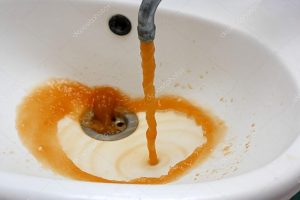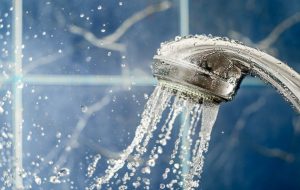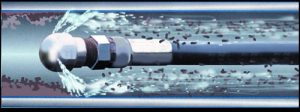Whether you’ve got kids or not, if you have a pool then chances are high that you probably have a few pool toys laying around. Pool toys come in all different shapes, sizes, colors, and types and can be fun for children and adults of all ages. From inflatable rafts to plastic beach balls and anything in between, pool toys can provide hours of endless entertainment. Although your pool toys spend their days in the water, this doesn’t necessarily mean that they’re clean! Keeping your pool clean is a no brainer, but its important that you don’t forget to keep your pool toys clean, too. Keeping your pool toys clean can help prevent you, your children, and your friends from picking up nasty germs or touching mold and mildew that may develop. The bacteria that grows on pool toys can cause colds and ear infections. Keeping your pool toys clean can also help prevent extra bacteria from growing in your pool. Proper pool toy care and cleaning will also help greatly extend the life of your pool toys. After all, no one wants to purchase new pool toys year after year. If you feel a slimy film developing on your pool toys, your toys are definitely past due for a cleaning! This slimy film is actually a growing layer of algae. The algae on your pool toys can spread to your pool water. Once algae begins growing in your pool, it can be difficult and costly to get rid of.

To clean your pool toys, there are a couple of options. Before you get started, make sure you’re wearing protective gloves and eyewear. This is particularly important if you’re using option one, which uses bleach. You may also want to wear old clothes in case of any splash back. You may also want to do this on a concrete or gravel surface to prevent damage to your lawn. If this isn’t possible, you can lay out a shower curtain liner to protect your yard. Foam toys should be thoroughly cleaned 3-4 times a year and inspected regularly for signs of mold and mildew. The porous material that foam toys are made of cause them to be extra susceptible to mold, mildew, algae, and bacteria growth. Plastic and rubber pools toys can be cleaned on an as needed basis.
Option One-
- Pour two cups of household bleach into one gallon of water and mix well.
- Using a sponge, dab the water and bleach mixture over your pool toys. For any built up grime, you can use a soft bristled dish brush.
- Rinse your toys well with a hose.
- Thoroughly dry all your pool toys before putting them back into the pool.
Option Two-
- Mix ¼ cup of baking soda with one quart of warm water. Mix well to dissolve baking soda.
- Using a sponge, dab the baking soda and water mixture over your pool toys. For any built up grime, you can use a soft bristled dish brush.
- Rinse your toys well with a hose.
- Thoroughly dry all your pool toys before putting them back into the pool.
Both options will work well to clean your pool toys. Option two is a more natural way to clean your pool toys. Although it seems strange to dry pool toys that are made for getting wet, its important to dry them to discourage mold, mildew, and algae from growing.
In addition to properly cleaning your pool toys, proper storage is also important. Properly storing your toys can help prevent mold, mildew, and bacteria growth and can help protect your toys from getting damaged. There are some great DIY pool toy storage options out there. A couple options include a pallet chest or a toy net. Both options allow for air flow around the toys, which can help cut down on mold, mildew, and bacteria growth. If you’re putting your pool toys away for the season or for an extended period of time, its a good idea to give them one last cleaning before putting them away. After you clean them, make sure they’re completely dry and deflate any inflatable toys before storing them.
Although proper cleaning and storage habits can greatly extend the life of your pool toys, its important to regularly check your toys for signs of damage. If you notice that any of your plastic or rubber pool toys have holes, you should discard them. Holes in your pool toys can lead to mold and mildew growth on the inside of a toy where it can’t be cleaned. If your foam toys are damaged or are already moldy, you should dispose of them as well.
For all of your outdoor plumbing repairs and maintenance make sure to choose Masterflo Plumbing!








